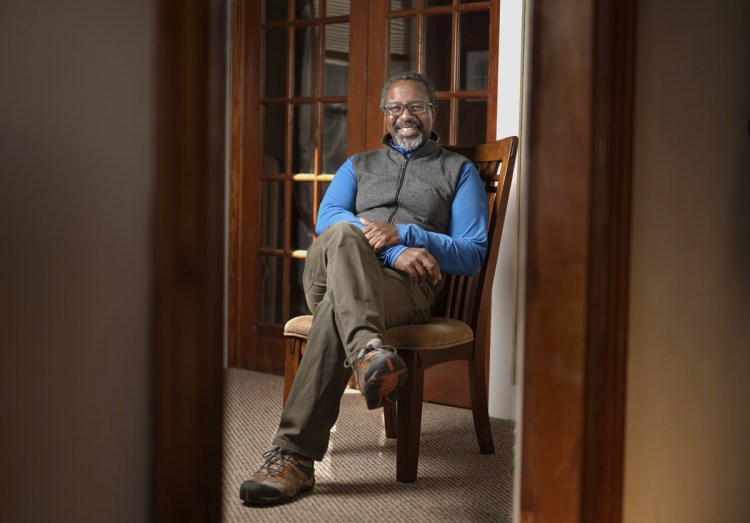R.J. Reid can empathize with Maine’s immigrant community.
He was born in London to parents who had immigrated to Britain from Jamaica. The atmosphere in Britain when he was growing up, he said, was similar to the rising tide of anti-immigrant sentiment in the U.S. today.
“There was a lot of fear, so it made it combative growing up,” he said.
Reid soon became combative in a literal sense, joining the British Army for three years, which left him with a mixed goal moving forward.
“I knew I wanted to see the world,” he said, “but not wearing camouflage and carrying a weapon.”
A long and varied life followed, from counseling troubled youths in American camps, working as a behavioral therapist, getting a degree in social work from the University of Maine, becoming a U.S. citizen and finally to setting up a private therapy practice in Portland.
So perhaps it’s understandable that Reid was hit hard by the election of Donald Trump, whose presidential campaign, and presidency, has been anchored by an anti-immigrant foundation.
But Reid, 51, also found that many of his friends and patients were likewise upset, so he started a group that met to discuss the election and what it meant.
“Portland is a good city, kind of progressive, and willing to be open and hear things from the other side,” Reid said, “but people were shocked and angry and really in disbelief. They just wanted to get together and eat some food and vent.”
That venting, he said, soon led to action and many of the members of the group wanted to focus on making sure that immigrants felt welcome, whatever the outcome of the election.
One had a background in farming, Reid said, and he helped immigrants who had also been farmers before coming to the U.S. to connect with local farms to put their experience to use. Another group member makes films and started interviewing immigrants to document their experiences. Another is good at connecting immigrants with the services they need.
Reid said he thought the group would only want to express their unhappiness, but they instead focused on productive steps. And that taught him some lessons.
“Each person is a powerhouse unto themselves,” Reid said. “They are good people that have good jobs and can make a contribution and just didn’t know how. And the group aspect was important,” so that members could feed off each other’s expertise.
Reid said his practice is open to all, but he feels he can really help African-Americans because of his shared experience as a black man in a predominantly white state.
“I’m a black man from London, and 90 percent of the people I meet have never encountered that,” he said. “There’s a unique experience you have living in Maine if you’re black. I help people navigate what it’s like to be black and what it’s like to be a Mainer.”
“The challenge I’ve had as a black man was that people didn’t believe I could do it,” he said. “I try to help people move through this thick water we’ve been going through.”
Comments are not available on this story.
Send questions/comments to the editors.



